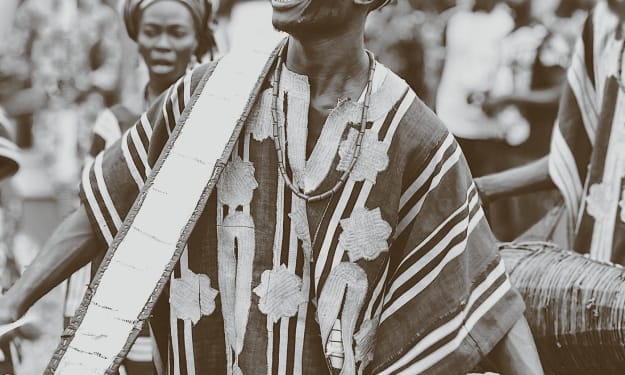Afrobeat: The Global Love Affair with the New Bride of Music
The rise of globalization and the increased accessibility of music through digital platforms have played a significant role in Afrobeat's global popularity.

In recent years, a vibrant and infectious rhythm has taken the world by storm, captivating listeners from all corners of the globe. Afrobeat, a genre that originated in Nigeria and has its roots deeply embedded in the cultural heritage of West Africa, has become the new bride loved worldwide. With its irresistible fusion of traditional African music, jazz, funk, and highlife, Afrobeat has transcended borders, capturing the hearts and souls of music enthusiasts across continents.
Afrobeat emerged in the 1960s and 1970s, spearheaded by the legendary Nigerian musician and political activist, Fela Kuti. Fela's visionary approach to music combined elements of Nigerian highlife, Yoruba rhythms, and Western influences, creating a captivating and dynamic sound that resonated with both local and international audiences. Fela's politically charged lyrics, infused with social commentary and advocacy for human rights, added a powerful dimension to the music, elevating it beyond mere entertainment.
The rhythmic foundation of Afrobeat lies in the pulsating drums, intricate percussions, and hypnotic basslines that form the backbone of the genre. These rhythmic elements, often accompanied by a horn section and layered with soulful melodies, create a sonic tapestry that is both captivating and dance-inducing. The infectious groove of Afrobeat has an uncanny ability to transport listeners to a place where joy, liberation, and unity coexist.
One of the distinguishing features of Afrobeat is its ability to seamlessly blend traditional African musical elements with contemporary influences. This fusion has allowed Afrobeat to evolve and adapt to the changing musical landscape, appealing to a broader audience while retaining its authentic African essence. Artists such as Femi Kuti, Fela's son, and his band, The Positive Force, have carried the Afrobeat torch, continuing to innovate and push the boundaries of the genre.
The rise of globalization and the increased accessibility of music through digital platforms have played a significant role in Afrobeat's global popularity. Artists can now easily share their music with audiences around the world, and listeners can discover and connect with diverse musical genres like never before. Afrobeat's infectious rhythms and vibrant energy have resonated with people from various cultural backgrounds, fostering a sense of unity and cultural exchange.
The influence of Afrobeat has transcended the music industry and permeated popular culture. In recent years, numerous international artists have embraced Afrobeat's infectious sound, incorporating elements of the genre into their own music. Collaborations between African artists and globally recognized musicians have further amplified Afrobeat's reach and cemented its position as a global phenomenon. From Beyoncé's collaboration with Nigerian artists on her "The Lion King: The Gift" album to Drake's sampling of Afrobeat rhythms in his hit songs, the genre's impact on mainstream music is undeniable.
Moreover, Afrobeat's influence extends beyond the realm of music. The vibrant aesthetics, bold fashion choices, and distinct dance styles associated with the genre have become cultural phenomena, celebrated in music videos, fashion runways, and dance studios worldwide. Afrobeat has become a symbol of cultural pride and empowerment, inspiring a new generation of artists, fashion designers, and dancers to embrace their African heritage and express themselves through various artistic mediums.
Afrobeat's success can also be attributed to its ability to capture the spirit of the times. With its socially conscious lyrics, Afrobeat addresses pressing issues such as political corruption, social inequality, and the quest for justice. In an era where global activism and social awareness are at the forefront, Afrobeat's messages of empowerment and liberation resonate deeply with listeners who seek music that reflects their concerns and aspirations.
In conclusion, Afrobeat's ascent to global stardom is a testament to the power of music as a unifying force. Its infectious rhythms, dynamic melodies, and socially conscious lyrics have made it a beloved genre worldwide. As Afrobeat continues to evolve and fuse with other musical styles, its influence will undoubtedly expand, captivating even more hearts and solidifying its status as the new bride loved worldwide.





Comments
There are no comments for this story
Be the first to respond and start the conversation.